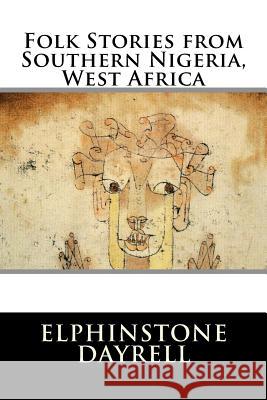Folk Stories from Southern Nigeria, West Africa » książka
Folk Stories from Southern Nigeria, West Africa
ISBN-13: 9781522928577 / Angielski / Miękka / 2015 / 82 str.
MANY years ago a book on the Folk-Tales of the Eskimo was published, and the editor of The Academy (Dr. Appleton) told one of his minions to send it to me for revision. By mischance it was sent to an eminent expert in Political Economy, who, never suspecting any error, took the book for the text of an interesting essay on the economics of "the blameless Hyperboreans." Mr. Dayrell's "Folk Stories from Southern Nigeria" appeal to the anthropologist within me, no less than to the lover of what children and older people call "Fairy Tales." The stories are full of mentions of strange institutions, as well as of rare adventures. I may be permitted to offer some running notes and comments on this mass of African curiosities from the crowded lumber-room of the native mind. I. The Tortoise with a Pretty Daughter.--The story, like the tales of the dark native tribes of Australia, rises from that state of fancy by which man draws (at least for purposes of fiction) no line between himself and the lower animals. Why should not the fair heroine, Adet, daughter of the tortoise, be the daughter of human parents? The tale would be none the less interesting, and a good deal more credible to the mature intelligence. But the ancient fashion of animal parentage is presented. It may have originated, like the stories of the Australians, at a time when men were totemists, when every person had a bestial or vegetable "family-name," and when, to account for these hereditary names, stories of descent from a supernatural, bestial, primeval race were invented. In the fables of the world, speaking animals, human in all but outward aspect, are the characters. The fashion is universal among savages; it descends to the Buddha's jataka, or parables, to AEsop and La Fontaine. There could be no such fashion if fables had originated among civilised human beings."
Zawartość książki może nie spełniać oczekiwań – reklamacje nie obejmują treści, która mogła nie być redakcyjnie ani merytorycznie opracowana.











